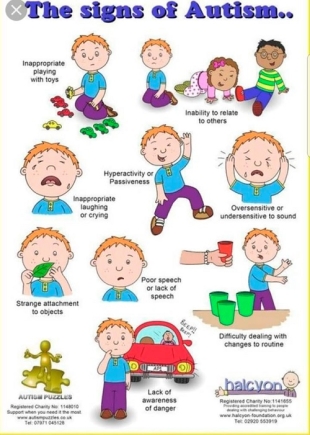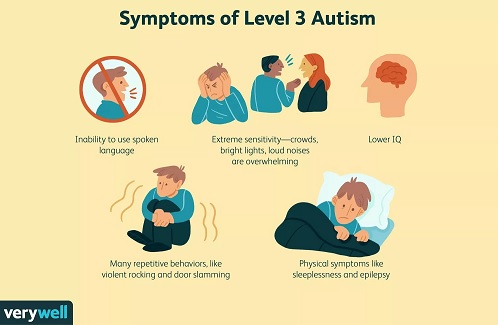
Empowering parents to give better care to children with autism
“As a mother with two of my three children living with autism, I can confidently say that when parents and caregivers are empowered with information and understanding, unique challenges associated with raising children with autism become surmountable,” Harriet told the Daily Graphic.
Advertisement
She said the lack of widespread awareness and understanding of autism had led to misconceptions, discrimination and stigmatisation, making it difficult for individuals with this silent disability called autism to be fully accepted and integrated into society.
Autism is a neurodevelopmental disorder that affects social communication and behaviour, and it is important to shed light on how it is understood and addressed in different regions, including Ghana.
My first boy is almost 15 and the last, who is a twin, is 13 and they are all at the very end of the autism spectrum, meaning they cannot verbally communicate and are highly dependent on adult support for their everyday activities.
My husband and I faced a number of challenges with our children when they were diagnosed with autism and were very young.
Our initial challenges, which I believe most parents like us are facing, included not being able to figure out what their needs were at any given time, especially when they resort to crying to depict their discomfort or the fact that they needed help.
“It was very difficult to understand them.
You don’t know what they are going through, and they cry a lot to let you know there is something wrong.
Initially it was a lot of guess work for us.
When they cry, we try so many things like giving them food, water, cuddling, taking them to the loo among others.”
“Sometimes it’s so bad that none of these work out, making it so frustrating.”
When my husband and I made the deliberate effort to seek more knowledge and understanding into autism, we were able to make life easier and better for ourselves and our children.
Foundation and book
“As a parent of a child with autism, you don't have to navigate the journey alone.
Build a support network that includes family members, friends, other parents of children with autism and support groups.
Sharing experiences and learning from others can be empowering and comforting,” she said.
“Understand that autism is a spectrum disorder, and each child's experience is unique.
Resources such as books, online articles and workshops can provide valuable insights and practical advice,” she said.
Their life experiences coupled with limited support system for affected families and limited awareness and understanding about autism encouraged her family to set up a foundation.
“Thanks to the pacesetters who have championed the cause, autism is now a word recognised by many.
However, there is still much work to be done.
As we strive to develop a better understanding of the condition.”
Known as the Sparkles Foundation, it is registered and operational both in the UK and Ghana to help families with children with special needs.
“As a parent of three children, two with autism, the personal difficulties experienced led me with the support of my husband, Richard, to found Sparklers Foundation UK and Ghana.”

Symptoms of level 3 Autism
“Our years of experience is now used in combatting isolation, empowering persons with disability, and supporting families managing autism and other disability.”
The learning from their own experience has encouraged her to write a book as part of the support to families who find themselves in a similar place and with similar challenges.
It is the story of our family and our struggles with autism, but at the same time a story which resonates with many other individuals, families and communities touched by autism or other forms of disability.
Book
“This book, ‘Autism and Living Series: Understanding Autism’ shares from both a parental and a professional specialist perspective, and is designed to aid parents, caregivers, special educators, health practitioners, and the general public on who a person with autism is and the diverse strategies and approaches for meeting their needs.”
“The knowledge shared is based on tried and tested approaches with our two preverbal young men on the spectrum (Delasi and Dave) who have such intriguingly different and fascinating personalities.”
“This book is a journey down memory lane, aiming to share one family’s lived autism experience, the challenges they’ve faced so far, and some coping mechanisms.”
“Numerous effective strategies and resources have also been provided in the book based on my 17 years of teaching and research in England, working closely with neurotypical children as well as children with autism and other additional needs.”
“It also highlights some key indicators that parents or guardians are to look for when their children are showing signs of delayed development.”
“This book is one of the series sharing insight on how to support your child from infancy to adulthood.
The book walks you through what autism is, the causes, recognition of symptoms, diagnosis, grieving, intervention, challenges, supporting your child after diagnosis, crises phases, and managing through it all. Parental and family well-being is not neglected.”
It also shares some effective professional strategies from the author’s many years of training and experience as a Special Educational Needs and mainstream teacher, autism researcher, founder of an international autism charity, disability advocate and a senior leader in autism specialist settings in UK and Ghana.
“Remember that every child is unique, and with love, patience and understanding, you can help your child with autism lead a fulfilling and enriched life.”
Early intervention
“Early intervention is critical for children with autism.
If you suspect your child might be on the autism spectrum or notice developmental delays, seek professional assessment and intervention as soon as possible.
Early intervention programmes can significantly improve your child's communication, social skills and overall development.”
“Sensory sensitivities are common in children with autism.
Pay attention to your child's sensory preferences and sensitivities.
Create a sensory-friendly environment by minimising overwhelming stimuli and incorporating sensory activities that your child enjoys.”
“Communication can be a significant challenge for children with autism.
Employ various communication strategies, such as using visual aids, gestures and simple language, to facilitate understanding.”
“Encourage your child to communicate in their preferred way, be it through speech, sign language, or augmentative and alternative communication (AAC) devices.”
“Embrace Applied Behaviour Analysis (ABA) Therapy: ABA therapy is a widely recognised and evidence-based intervention for autism.
Consider enrolling your child in ABA therapy, which focuses on positive reinforcement and behaviour modification to enhance communication, social skills and daily living activities.”
“Social skills are vital for your child's overall development.
Encourage social interaction by arranging playdates with understanding peers or engaging in group activities where your child can learn and practice social skills in a supportive setting.”
“Remember that caring for a child with autism can be emotionally and physically demanding.
Prioritise self-care to maintain your well-being.
Take breaks when needed, seek respite care, and engage in activities that bring you joy and relaxation,” she advices.
There are still hard questions to answer around inclusive education, adult care and life long support for neurodiverse persons who may require care all their lives.
Who will take care of my children after I'm gone?
I wish someone had handed me a book like this when my eldest, Delasi was diagnosed.
And I yearn with all my heart for our pain and victory to become a blessing to many families and communities around the world”.
Writer’s email: [email protected]




